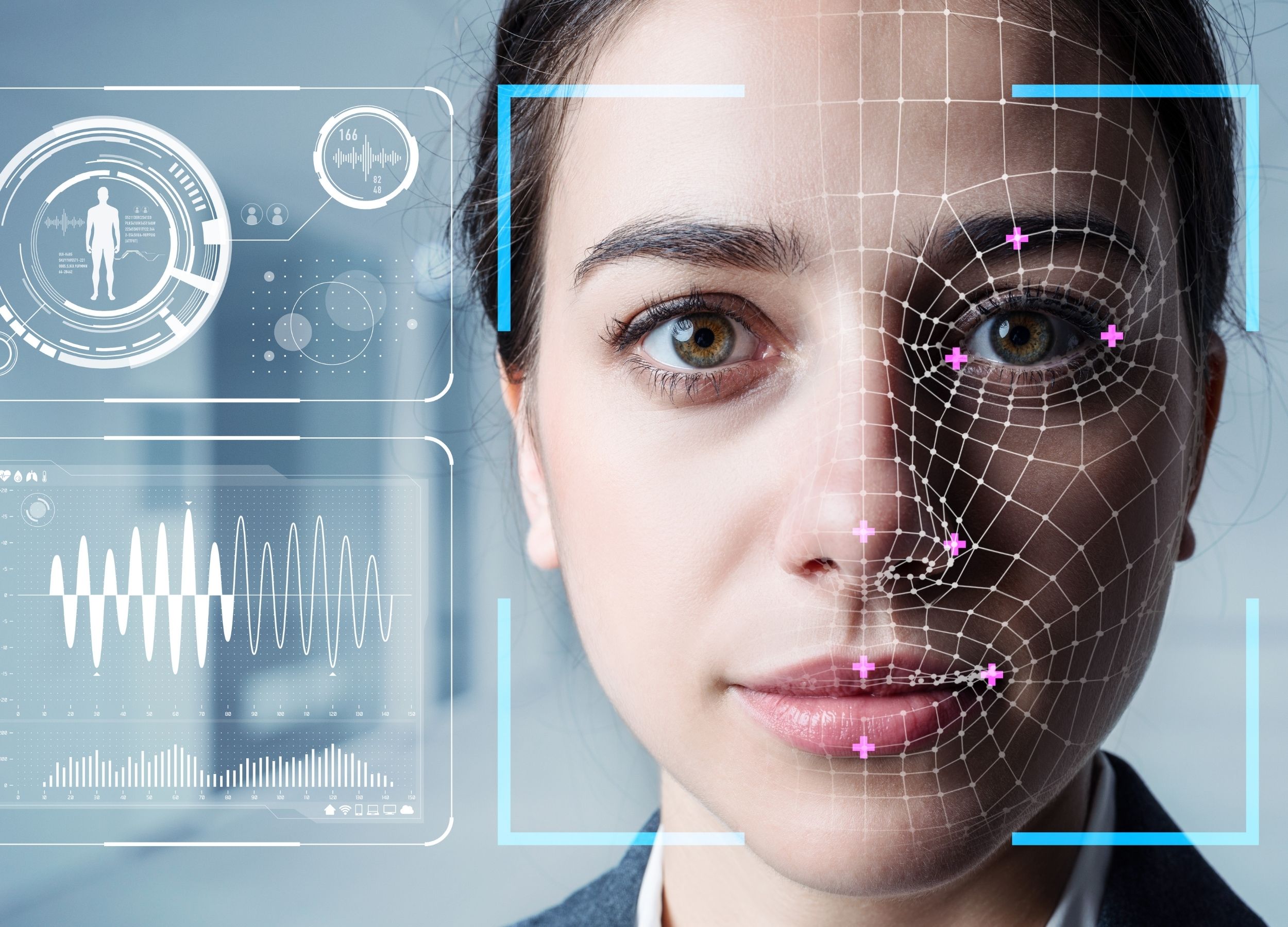
Murray Scott: There is a general suspicion sometimes about artificial intelligence. For you, what are the main benefits of AI and why should people be excited and positive about the impact of AI on society?
Bill Schmarzo: The positive side is our ability to do more with less. Using AI we can make very precise decisions across a wide range of cases – everything from business, to healthcare, to education, to society, to diversity issues, to environmental issues. We can start to move from making overly generalized policy and operational decisions that have led to lots of inequities in society and move to an environment where we’re making very precise decisions that help people, but actually cost less.
To me, that is the exciting thing. We can start transitioning from decisions based on averages to decisions based on predicted propensities. That’s a hard shift in how people think about things but the ramifications are staggering.
Murray: An important challenge is educating people in how we use data and bring data into those kinds of scenarios when making big decisions. What are the some of those challenges in developing a responsible type of AI?
Bill: There is a lot of discussion regarding data literacy and data literacy has two components. There is a data awareness component and then an AI literacy component. From a data-awareness perspective, people need to understand how their data is being used or how it could be used. They need to be very vigilant in how they protect their own data. We don’t do that very well today, and so there needs to be much more of an awareness effort put in place to ensure that personal data is not being used for nefarious reasons.
We kind of gloss over this issue. We don’t even talk about our data footprint and people don’t understand, when they use their iPhones, how much data is being captured by these devices. So, there needs to be education and awareness on data, but then there needs to be this conversation and education on AI.
What makes AI both powerful and scary, is this ability to continuously learn and adapt with minimal if any human intervention. The challenge becomes, in that kind of environment where the AI can learn faster than any human could ever learn, is that you have to be very careful about how you define the variables around which you want to drive that learning.
Murray: AI is incredibly powerful but surely humans drive and control that power?
Bill: I would argue that AI is not smart at all. AI is really stupid. Given the variables you tell it to optimise against, it’s just going to continue to learn and try different things. And you’re spot on. We think that AI is the is the realm of the data scientists and I argue that AI is a realm of being human. What AI is ultimately going to do, is force humans to become more human.
We will have to embrace things like empathy and sympathy. We will have to have make sure AI models look at things like customer satisfaction, employee satisfaction, society, diversity, environmental issues and I’d even argue spirituality becomes a key component.
Murray: Are there specific things that we can do to ensure accountability or oversight for corporate organizations, or our governments to make sure that these kinds of ethical considerations are taken into account.

Bill: Oh man, that’s a really hard question. You do need to have some guidelines and rules regarding the ethical use of data and AI models, but whenever you bring in rules and regulations, there are always organizations that just ignore them. So, it ends up being a disadvantage for those organizations that play by the rules, and an advantage for those who are not afraid. Part of the problem has always been: how do we enforce rules? We actually probably need fewer rules, but the rules need to be enforced.
When I’m talking to organisations about whether they should use a model or not, I always say, “Use the mom rule.” If you explain to your mom what your model did and what the intended outcomes of that model were, would your mother be proud or embarrassed of you?
If your mom would be proud of you, you are probably doing the right thing. If she would be embarrassed, you should probably go work for a different company.
Murray: A specific area where this has an influence is digital nudging. There are quite sophisticated tools now designed by governments as well as commercial organisations to encourage and modify certain behaviours. What are your thoughts on the ethics of digital nudging?
Bill: Nudging has been around forever. Go back to the car commercials in the 50’s auto shows. They always had scantily clad women hanging on top of these cars and you’re wondering, “Are you selling cars or what are you selling?” We have always used advertising imagery to nudge people’s behaviours. Advertising is all about nudging you in certain directions and digital just gives you more precise tools to figure out how to really influence behaviours.
That is why I think, instead of worrying about the nudging, it’s about being aware of the data being collected about you and understanding how AI models might be used to influence that to influence your behaviours.
One of the sessions we do in my class is around critical thinking. Really, it is up to us, to not just teach college students but also middle school and grade school students. As adults, we must have a whole ongoing conversation around critical thinking.
With critical thinking, you have to think about the source, always be dubious about the data in front of you. People have agendas; understand what their agenda is. Critical thinking is not only something we need to teach to our students; it is something we need to constantly revisit as a society, and it is a key part of the data awareness and AI literacy conversation.
Murray: Changing focus from data awareness to data literacy – what do you mean by data literacy and what kind of data literacy is needed to enable people to be creative?
Bill: In the data awareness space, we run lots of envisioning exercises with our customers and students because they don’t really understand what they can do with the data. You’re spot on in that we need to help people imagine how they could use data to improve their condition, to drive better outcomes – that’s ideation. Design thinking does a marvellous job of democratising ideation – not just random ideation but ideation around a customer. We are going to walk in the shoes of our customers using personas, journey maps and all these different design techniques to really understand what the customer is trying to do. Then, we are going to ideate across a diverse set of stakeholders to figure out: how do we make that customer journey more successful?
Murray: To what extent has the recent explosion of big data created more of a demand for human creativity.
Bill: Fundamentally, data in of itself has zero value. In fact, I would argue that data has a cost. If you have data, you have to pay to store, back up and protect it. By having data, you open yourself up to all kinds of potential regulatory and compliance liabilities. This is where it’s very different from oil. Possession of oil is quite powerful; we have and continue to fight wars over oil. Will we fight wars over data? Probably not because it’s not the possession of data that has value – it is the use of it in solving problems. This is where design thinking and creativity comes in.
Not all data is of equal value. Oil is basically the same wherever you are. Data has different value depending how it is used and it requires a very creative nature to figure out how best to blend these different data sources together to help us make difficult decisions.
Murray: My impression of design thinking is that you need to be very open minded and be able to think outside the box. Do you find it easier to teach design thinking to certain types of individuals?
Bill: I think we’re all born with a naturally curious foundation. We are born with a curious human nature and design thinking liberates that curious part that has been smacked, slammed and pounded out of us. Think about everything we do as a society to drown out curiosity, starting with students. We have standardised curriculum, classes, testing – everything is standardised. Why? Because we are so interested in having a common average treatment across all our students. If you make decisions based on averages, at best, you are going to only get average results.
Design thinking seeks to overcome and unleash that curiosity that is naturally embedded in us but has been buried down. Everybody is capable of being creative, but we have to help people realise and respark that.
In a lot of projects that I have run, the best ideas have come from the most unlikely people. They are typically not the people who sit in the ivory tower. The people with the best ideas are the people at the front lines – the blue-collar workers engaging with customers and running operations. Design thinking helps those people to realise that they have all these latent insights and knowledge inside of them, and we are going to unleash that to help solve some wicked hard problems.
Murray: We teach design thinking and critical thinking at NUI Galway, but is there anything else we can do to prepare our students for this new reality?
Bill: Yes, you can’t be can’t be afraid to fail. That is the heart of it. If you think there is only one answer, when you find that answer, you stop looking. Sometimes you end up compromising on the least-worst option; but if you are constantly seeking to find an even better option, then you can synergise to the best-best option. That only comes with the willingness to allow failure to happen. Corporations, and even some schools, don’t like to talk about failure. In engineering and mathematics, you figure out the calculus and there is one answer. Right? Well, there is one answer in math; there is not one answer in life. To find the right answer requires lots of trying, failing, learning and trying again.
I love this phrase: the economies of learning are more powerful than the economies of scale. The organisations and people who are going to survive are those willing to continuously try, learn, fail, learn again, try again… As a university, NUI Galway must encourage failure.
All of these issues circle around the question: how do you create value? Every university should be teaching this. Every time I talk to customers, I ask: how does your organisation define value creation? The KPIs and metrics used to measure how an organisation creates value says more about that organisation than any fictional mission statement they might have created. That is something we need to teach. We need to demand more from how we are measuring success. This is not just financial or operational, it has to include customer, employee, partners, environment, society, diversity and spirituality.
Once we understand the value conversation, now our students are prepared to have a conversation around how to use data and analytics to become more effective; how to use design thinking to liberate ideation and bring everybody into the process, to transition from the least-worst option to the best-best option; and how to leverage economics to create, distribute and monetize value.
Murray: We try to teach our students to embrace diverse views and help them understand the resulting trade-offs. Society is complex and the decisions we make have impact on multiple levels. For example, we might impose restrictions to reduce travel and stop the spread of COVID-19, but we have to trade that off with the economic impact of preventing travel across borders.
Bill: You hit the nail on the head. Universities can play a huge role in this, not just in terms of students, but you have an obligation to carry that out to society. When I do a lecture in Galway, people from the city are always invited. That is critical; the university sits within a society. Galway in particular has an opportunity to reach and influence almost all of Ireland. That to me, is the power of a university. You can not only educate the students on campus, but have a continuous education program that does something that no other institute really does well. That is not only an opportunity but an obligation: what are we doing for everybody living in the city of Galway, in western Ireland and the entire country to embrace diversity, embrace conflict and synergise versus compromise.
Murray: How well is Ireland placed globally to deal with some of the challenges from this fourth industrial revolution?
Bill: Ireland is in a very unique position in a positive sense. You have obviously got a strong entrepreneurial technology backbone. You’ve got great educational systems. With those as your foundation, you are in a great position. The biggest challenge that every country is going to have is their ruling government and how progressive or regressive they might be. How fearful they are of change or how much they embrace change. Ireland is to me has always been a country that embraces change.
I think Ireland in a great spot. From my university experiences, I obviously have a very solid feeling for Galway. Ireland has the right culture to do something that much larger countries can’t do.
To me, the organisations that tend to have the most success with data science are those that are smaller. Smaller organisation can rally the troops more easily. It’s not only the senior people who need to push authority and decision making down the ranks but it’s also the grassroots people who say, “I am ready to take on more authority and responsibility. I am ready to be accountable.” There is no country as well positioned to do that as Ireland.
Murray: That is very inspiring and encouraging to hear. For the students who are listening, what piece of advice would you give them as they embark on their careers?
Bill: One; don’t be afraid to fail. If you are not failing, you are not learning, you are not pushing yourself. You can’t be afraid of failure. Step outside your comfort zone and look at failure as a learning opportunity. Two, develop the ability to unlearn, especially as you get older. Probably one of the biggest challenges I face in my life is learning how to toss aside concepts and beliefs that I fundamentally believed were critical 20 years ago which are today no longer important. When you climb a ladder, you must, at some point, be willing to let go of that rung below. To let go of things that are no longer relevant, so you can reach up to the next one and move forward.
When I come to NUI Galway to do workshops, the level of engagement is outstanding. The students want to learn I and I love being associated with that hunger, because I get my energy from that. I learn from the students sometimes more than they learn from me.
Murray: One last question; what is the next level of AI in your view?
Bill: Humans empowering humans. We can build machine processes that continuously learn and adapt on their own with minimal if any human intervention, but AI is going to top out unless you can create the compliment, which is to empower humans.
The algorithms will get better; they will make cooler ones. But ultimately, all of that is going to top out. AI is going to supercharge when human empowerment takes these improvements and lifts them up to reach new levels. Here is the beauty; AI can continuously learn and adapt. [Whispers] So can humans.
